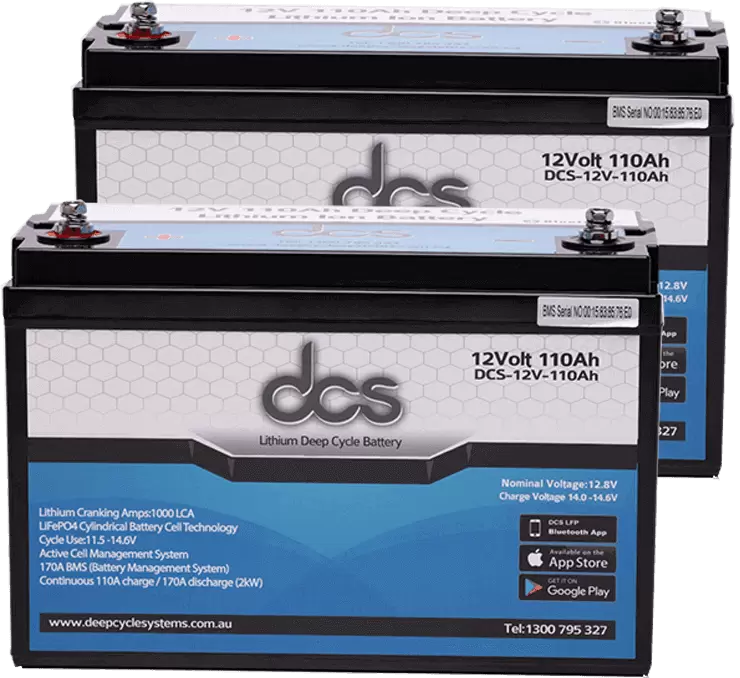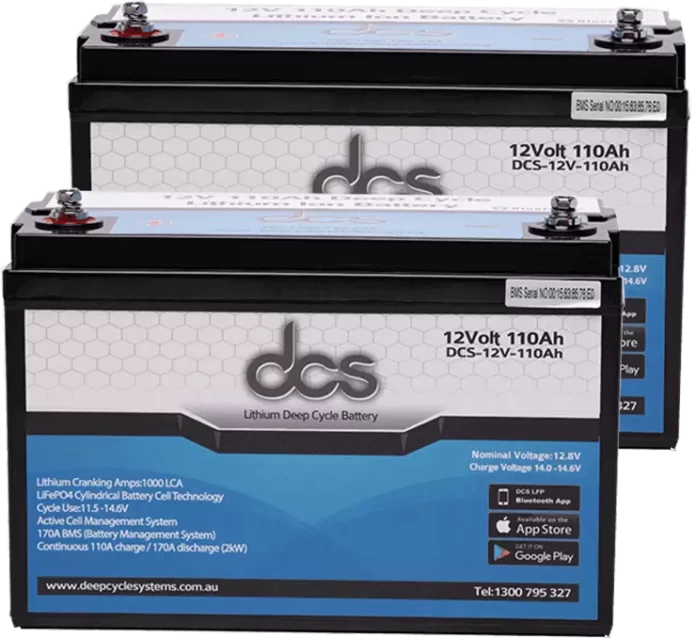Are you looking for a reliable, efficient, and long-lasting battery to power your RV or marine vessel? Look no further than lithium cranking batteries! In this ultimate guide, we will explore the advantages of using a lithium-ion cranking battery for RV and marine use and how to choose the right one for your needs. They are also known as starting batteries. With the right battery, you can get the most out of your RV or marine vessel and enjoy a worry-free experience. Keep reading to learn more about lithium-ion cranking batteries and why they are the perfect choice for your recreational vehicle or boat.
What Are The Benefits Of Using A Lithium-Ion Cranking Battery?
Lithium-ion cranking batteries offer many advantages for RV and marine use compared to traditional lead-acid batteries. Lithium-ion batteries are much lighter, more efficient, and more powerful than their lead-acid counterparts. Lithium-ion batteries are designed to last much longer than lead-acid batteries.
Lithium-ion batteries are great for RV and marine use because they can be used in smaller spaces. Their lightweight design makes them easy to move and install, making them a perfect choice for tight spaces or areas with limited space. Additionally, they have a much higher energy density than lead-acid batteries, which means they provide a higher power output with fewer cells, meaning you can get more performance out of a smaller battery.
Lithium-ion batteries also require less maintenance than lead-acid batteries. They don’t need to be regularly charged, which means they’re much easier to keep running properly over time. Finally, lithium-ion batteries have a longer life expectancy than lead-acid batteries; they can last up to five times as long as lead-acid batteries, meaning you won’t need to replace them as often.
Lithium-ion cranking batteries offer several advantages for RV and marine use that make them the perfect choice for power needs. With their lightweight design, high power output, and long life expectancy, lithium-ion cranking batteries are ideal for RV and marine applications.
How Do Lithium Starter Batteries Differ From Traditional Lead-Acid Batteries?
Lithium-ion batteries are quickly becoming the go-to option for many people when it comes to cranking or starting batteries for RV and marine use. But what exactly sets them apart from traditional lead-acid batteries?
The main difference between the two is in their chemistry. Traditional lead-acid batteries are made of plates of lead and lead oxide immersed in a sulfuric acid solution. In contrast, lithium starter batteries rely on lithium ions stored in a liquid or polymer electrolyte to generate power. This means lithium-ion batteries are much lighter, smaller, and more powerful than their lead-acid counterparts.
Lead-acid batteries also have an inherent disadvantage in capacity – they have a much lower energy density than lithium-ion batteries, meaning that they need to be bigger and heavier to store the same amount of energy. This can be particularly important when considering RV and marine applications where weight and size are limited.
 Lithium-ion batteries also charge faster than lead-acid batteries, making them more convenient for RV and marine applications. They are also much more efficient and can deliver up to twice the power of lead-acid batteries.
Lithium-ion batteries also charge faster than lead-acid batteries, making them more convenient for RV and marine applications. They are also much more efficient and can deliver up to twice the power of lead-acid batteries.
Finally, lithium-ion batteries have longer lifespans than traditional lead-acid batteries – typically around 2,000 cycles compared to just 500 cycles for lead-acid. This means lithium-ion batteries will last longer and require less maintenance.
What Are Some Things To Consider When Choosing Lithium RV Batteries?
When choosing lithium RV batteries, there are several key things to consider.
- Capacity: Make sure the battery can power all of your appliances and electronics while underway. Lithium-ion batteries typically have higher capacity than traditional lead-acid batteries, so they can provide more reliable and longer-lasting power.
- Size: Lithium-ion batteries are typically much lighter and smaller than lead-acid batteries, so it’s essential to ensure you have enough space to accommodate the battery in your RV or boat.
- Compatibility: Ensure the battery is compatible with your existing charging system and other onboard electronics. Many lithium-ion batteries are designed to be plug-and-play with existing systems.
- Cost: Lithium-ion batteries tend to cost more upfront, but they can be more economical over time due to their higher capacity and efficiency.
- Safety: Choose a battery with safety features to protect against overheating, overcharging, and short-circuiting.
Considering these factors, you can ensure that you choose the right lithium-ion cranking battery for your RV or marine application.
What Are Some Tips For Using A Lithium-Ion Cranking Battery?
- Make sure you charge your lithium-ion cranking battery regularly. This will help keep the battery functioning properly and increase its life span.
- Store your lithium-ion cranking battery in a cool, dry place when not in use. Heat and moisture can damage the battery cells and reduce their effectiveness.
- Avoid using the battery for more than its recommended charge rate. This can cause damage to the cells and significantly reduce the life of your battery.
- Consider investing in a battery monitoring system. This can help you keep an eye on the battery’s performance and alert you to any potential problems before they become serious.
- Follow the manufacturer’s instructions for maintenance and care. It is essential to follow their guidelines to ensure optimal performance from your lithium-ion cranking battery.
By following these tips, you can extend the life of your lithium-ion cranking battery and get the most out of your investment.
They Are Portable.
Lithium-ion cranking batteries offer several benefits over traditional lead-acid batteries for RV and marine use. One of the most notable advantages is their portability. Lithium-ion batteries are much smaller and lighter than lead-acid batteries, making them easier to transport and store. This makes them ideal for people constantly moving and who don’t want to be weighed down by heavy, bulky batteries. Lithium-ion batteries have a higher power-to-weight ratio, so they offer more power in a compact package.
The Lithium Marine Batteries Are High-Quality.
Lithium-ion cranking batteries offer a great combination of performance, durability and reliability. They can withstand the rigours of being used in an RV or boat, meaning they have a longer life expectancy than traditional lead-acid batteries. This means they can last up to 5 times longer, providing years of reliable power.
Lithium marine batteries also offer higher starting power and faster recharge than traditional lead-acid batteries. This allows them to start your RV or boat faster and maintain a steady charge for longer. This means you don’t have to worry about running out of power or constantly charging your battery.
Finally, lithium-ion cranking batteries have safety features like short circuit protection and reverse polarity protection, making them safer to use than other types of batteries.
Conclusion
Lithium-ion cranking batteries are an excellent choice for RV and marine use, offering numerous advantages over traditional lead-acid batteries. They provide a longer lifespan and better performance and are also much lighter in weight, making them highly portable. They can recharge quickly, allowing you to get back on the road or in the water faster. With all these benefits, it’s easy to see why lithium-ion cranking batteries are becoming increasingly popular among RV and marine users. With careful consideration and proper use, you can ensure that your lithium-ion cranking battery will last many years.
Related Websites
Articles on Blogseu
Articles on Blogspeoples
Articles on Thebigblogtheory
Articles on Allcityforums

